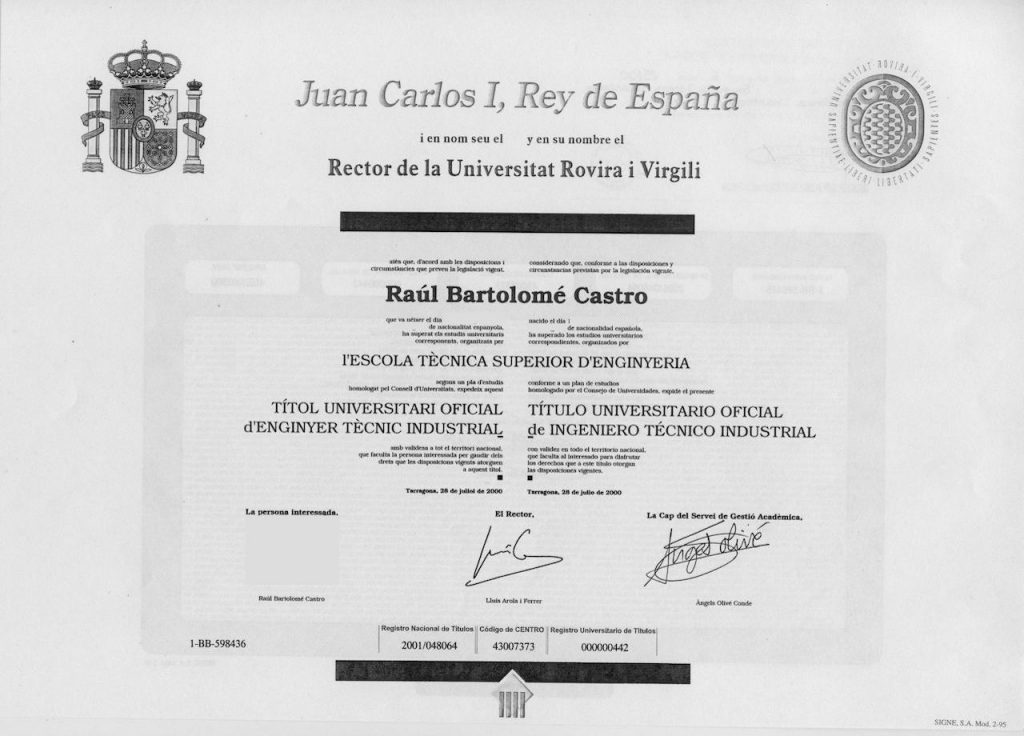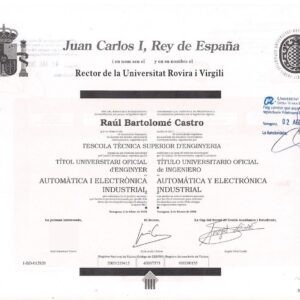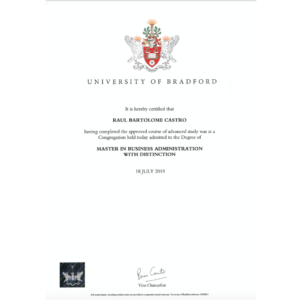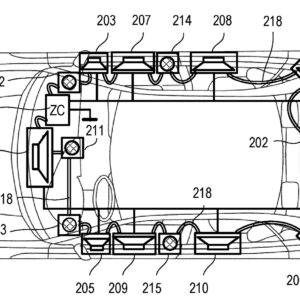
- Title: “Ingeniero Técnico Industrial, especialidad en Electrónica Industrial”. In English: BEng, Industrial Electronic Engineering
- Years: 1995-2000
- University: Universitat Rovira i Virgili, Escola Tècnica Superior d’Enginyeria
- Location: Tarragona, Catalonia, Spain
- Thesis: “Osciloscopio basado en Windows 95 utilizando el puerto serie“. In English: Oscilloscope for Windows 95 using serial port
Training objectives
The title of Industrial Technical Engineer, specialty in Industrial Electronics, implies specific training in the field of electronic technology applied to the industrial environment.
The first two courses of the degree are oriented towards fundamental knowledge and, in the last course, the student can choose between four blocks of knowledge intensification:
- Electricity: generation, transmission and distribution of electrical energy. Quality, measurements, equipment and electrical installations.
- Power Electronics: applications of microprocessors to industry and measurement and instrumentation systems. Power electronics.
- Automation and Control: control of industrial systems and automation.
- Industrial Informatics: industrial approach to computer control systems.
Professional skills
The industrial technical engineer, specializing in industrial electronics, has a profile clearly oriented to the professional performance of the following activities:
- Legal certification of facilities and other certifications; legal advice, and expert opinions.
- Direction and technical management in private companies and in the public administration; process maintenance; design of plans in technical office, and implementation of industrial projects.
- Control and automation of production and machines; development of electronic designs; instrumentation of air conditioning and electrical installations.
- Production management and quality implementation; prevention of occupational hazards, and safety and hygiene at work.
- Teacher in the areas defined by law.
Job opportunities
As industrial technical engineers, they have, by Law 12/86, professional attributes that allow them a wide variety of job options in the following sectors:
- Private sector: they can carry out their professional activity in practically all sectors of industry such as electrolytic, computer science, electrical, mechanical, communications, metallurgical, naval, chemical, aeronautical, etc.
- Free exercise of the profession: the self-employment of the industrial technical engineer, specializing in industrial electronics, is mainly focused on the drafting and signing of projects, the technical management of commercial premises facilities, homes, etc. and the management of opening licenses (with the limits of competences established by law depending on the specialty studied), the power and load of the facilities, etc. In addition, his training allows him to work on carrying out certifications, verifications, claims assessments, etc.
- Public administration: civil servant or labor personnel of technical bodies in all types of public administrations: European Union, state, regional and local, in carrying out expert opinions, etc.
- Research, development and innovation: research in public or private centers and in R + D + I departments of large companies, mainly in the development of models.
- Public and private teaching: in public and private teaching centers, both in secondary school and at university
Modules taken
| Subject | Credits | Type |
| Sound Characteristics and Electronic Processing | 3 | Free elective |
| Electrical Installation I | 4.5 | Free elective |
| Electronic Instrumentation | 9 | Core |
| Principles of Physics | 9 | Core |
| Algebra | 4.5 | Core |
| Calculus | 9 | Core |
| Applied Statistics | 6 | Core |
| Introduction to Computer Science | 6 | Core |
| Economy and Industrial Organization | 6 | Core |
| Industrial Automation | 9 | Core |
| Analogue Electronics | 7.5 | Core |
| Power Electronics | 7.5 | Core |
| Digital Systems I | 7.5 | Core |
| Industrial Computer Science II | 9 | Core |
| Automatic Control | 9 | Core |
| Electronic Technology I | 4.5 | Core |
| Electronic Technology II | 6 | Core |
| Linear Circuits and Systems II | 6 | Core |
| Technical Office in Electronic Engineering | 6 | Core |
| Final Project I | 6 | Core |
| Graphic Expression in Electronic Engineering | 6 | Core |
| Mechanical Systems | 6 | Core |
| Numerical Methods | 4.5 | Compulsory |
| Introduction to Digital Systems | 6 | Compulsory |
| Digital Systems II | 6 | Compulsory |
| Linear Systems and Circuits I | 3 | Compulsory |
| Electronic Technology Laboratory and Circuit Theory | 4.5 | Compulsory |
| Industrial Computer Science II | 4.5 | Compulsory |
| Electrical Machines | 6 | Compulsory |
| Final Project II | 6 | Compulsory |
| Techniques of Professional Communication | 3 | Optional |
| Signals and Systems I | 4.5 | Optional |
| Extension of Mathematics | 4.5 | Optional |
| Programming | 4.5 | Optional |
| Supplementary Automatic Control | 4.5 | Optional |
| Engineering of Electronic Equipment I | 4.5 | Optional |
| Engineering of Electronic Equipment II | 4.5 | Optional |
| Signal and Systems II | 4.5 | Optional |
| Electronic Systems with Microcontrollers | 4.5 | Optional |
| VLSI Design | 4.5 | Optional |
| Remote Control Systems | 4.5 | Optional |


